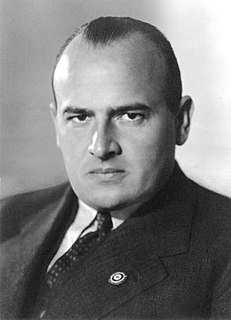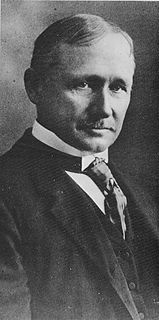A Quote by Patrick Ness
And here was a man who lived on belief, but who sacrificed it at the first challenge, right when he needed it most
Related Quotes
I start ... from a belief in individual freedom and that derives fundamentally from a belief in the limitations of our knowledge, from a belief ... that nobody can be sure that what he believes is right, is really right ... I'm an imperfect human being who cannot be certain of anything, so what position ... involved the least intolerance on my part? ... The most attractive position ... is putting individual freedom first.
But who prays for Satan? Who in eighteen centuries, has had the common humanity to pray for the one sinner that needed it most, our one fellow and brother who most needed a friend yet had not a single one, the one sinner among us all who had the highest and clearest right to every Christian's daily and nightly prayers, for the plain and unassailable reason that his was the first and greatest need, he being among sinners the supremest?
For such is man: a Theological Dogma might be refuted to him a thousand times - provided however, that he had need of it, he would again and again accept it as true. Belief is always most desired, most pressingly needed where there is a lack of will. Fanaticism is the sole "volitional strength" to which the weak and irresolute can be excited, as a sort of hypnotising of the entire sensory-intellectual system.
...as I reject the old time beliefs, it is not a matter of countering belief with belief, rather I can challenge the efficacy of old beliefs with sound arguments. We believe in nature and that human progress depends on the domination of man over nature. There is no conscious power behind it. This is our philosophy.
Yoga is existential, experiential, experimental. No belief is required, no faith is needed - only courage to experience. And that's what's lacking. You can believe easily because in belief you are not going to be transformed. Belief is something added to you, something superficial. Your being is not changed; you are not passing through some mutation.
Belief is one of the most powerful organic forces in the multiverse. It may not be able to move mountains, exactly. But it can create someone who can. People get exactly the wrong idea about belief. They think it works back to front. They think the sequence is, first object, then belief. In fact, it works the other way.
In the past the man has been first; in the future the system must be first. This in no sense, however, implies that great men are not needed. On the contrary, the first object of any good system must be that of developing first-class men; and under systematic management the best man rises to the top more certainly and more rapidly than ever before.
Even a superstitious man has certain inalienable rights: the right to harbor and indulge his imbecilities, provided only that he does not try to inflict them upon others by force; he has the right to argue for them as eloquently as he can. But he has no right to be protected from the criticism of those who do not hold them. He has no right to demand that they be treated as sacred. He has no right to preach them without challenge.

































